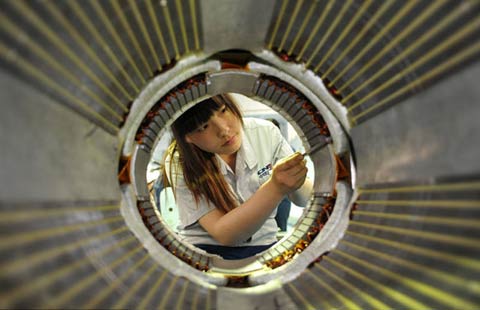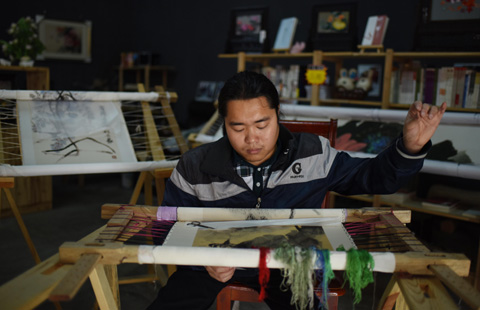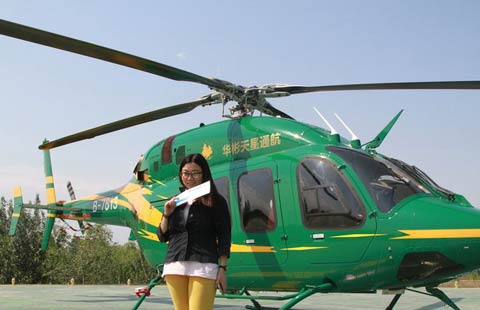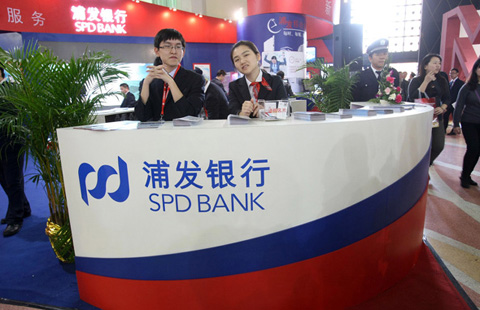AIIB founding members rise to 57
By Dai Tian (chinadaily.com.cn) Updated: 2015-04-15 14:11
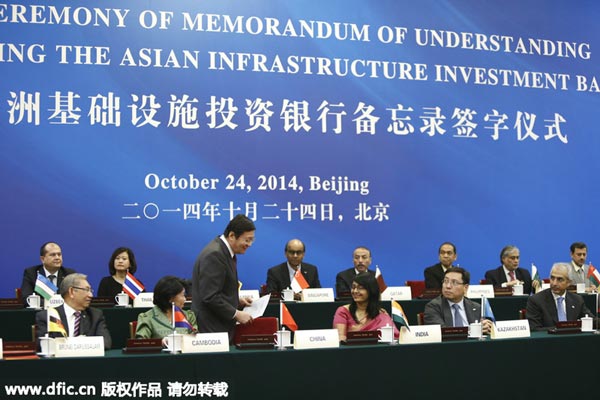 |
|
China's Minister of Finance Lou Jiwei, front third left, and other representatives of founding member countries attend the signing ceremony of memorandum of understanding on establishing the Asian Infrastructure Investment Bank (AIIB) in Beijing, Oct 24 2014. [Photo/IC] |
The latest approval brings the number of prospective founders to 57, the ministry said.
Productive negotiations have been held among the prospective founders on the new bank's draft rules, according to official sources. The rules are expected to be finalized and signed in the middle of the year after a final session planned for May.
With an authorized capital of $100 billion, the AIIB aims at spurring investment in Asian energy, transportation, telecommunications and other infrastructures.
The 57 AIIB founding members include Bangladesh, Brunei, Cambodia, China, India, Kazakhstan, Kuwait, Laos, Malaysia, Mongolia, Myanmar, Nepal, Oman, Pakistan, the Philippines, Qatar, Singapore, Sri Lanka, Thailand, Uzbekistan, Vietnam, Indonesia, New Zealand, Maldives, Saudi Arabia, Tajikistan, Jordan, UK, Germany, France, Italy, Luxembourg, Switzerland, South Korea, Turkey, Austria, Brazil, Georgia, the Netherlands, Denmark, Australia, Russia, Finland, Egypt, Kyrghyzstan, Sweden, Norway, Iceland, Israel, Portugal, Poland, Spain, Iran, UAE, Malta, Azerbaijan and South Africa.
The bank is expected to be set up at the end of this year.
Related Story:
Laying foundations for a successful AIIB by Zhang Chunyan from China Daily
The distribution of shares, the rules for governance and the use of capital are the main issues that the Asian Infrastructure Investment Bank must resolve well.
The new bank received applications to be founding members from 56 countries and regions before the March 31 deadline.
China aims to draw up the articles of agreement, which will be the basic rules governing the bank, by the end of June and have the bank operating by the end of this year.
With so many founding members, one of the thorniest issues is how voting shares in the bank will be allocated among them.
In October, the initial 21 members, including China, India and Singapore, signed an agreement in Beijing on setting up the bank. They agreed that GDP will be the basic criterion in determining share allocations among member countries and regions.
While the bank's shareholding structure is subject to negotiation, there will be different arrangements for Asian members and non-Asian members.
- Hit on the rail: Fast speed and steady hands
- Brazilian mining giant Vale signs MoUs with Chinese firms
- Easier bond rules may boost investment
- Foreign tech firms launch R&D centers in wider range of cities
- UN report predicts modest global economic growth
- Wine, liquor sales start flowing again
- Uber joins Baidu as Nokia's maps unit draws bidders
- Investors rush to grab share of Huatai float
